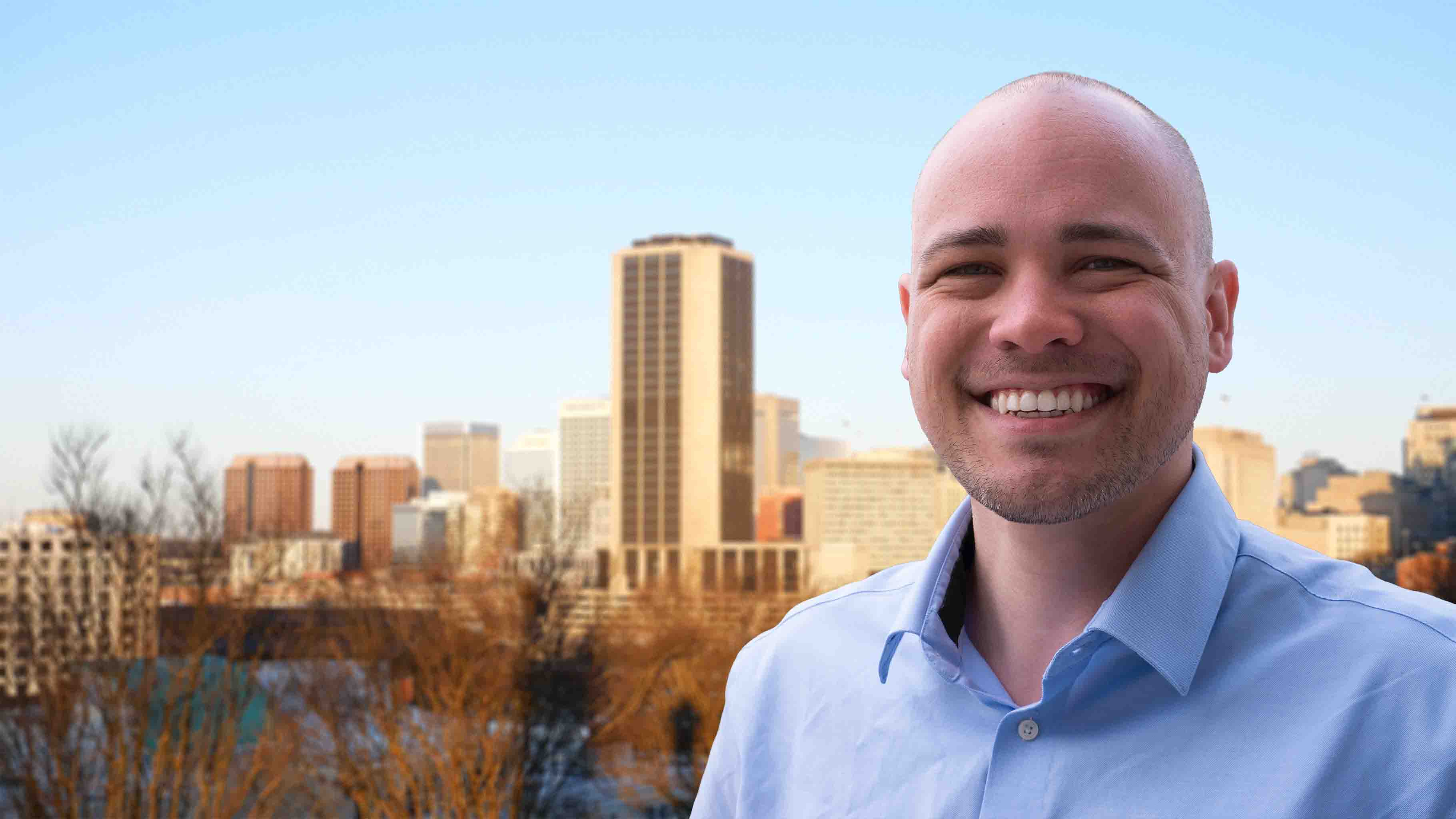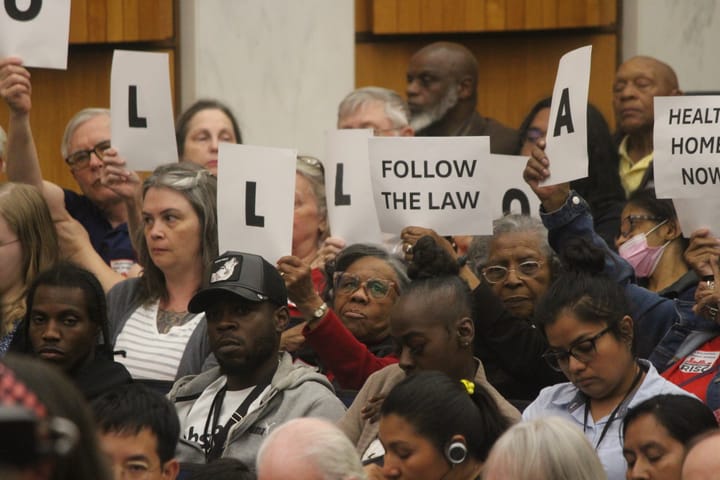In Richmond’s 7th District, a self-described democratic socialist takes on a Council stalwart

At Riverbend Roastery in Richmond’s East End-anchored 7th District, Eric Sundberg is talking about government accountability.
“When was the last time someone on council said, ‘I'm sorry, we didn't do a good enough job?’ Never? Maybe the last apology I can account for would be when Parker Agelasto got kicked off the Council for not living in the district,” he said. “But we have a track record here where there is such a fear of taking responsibility that we're never able to fix problems, because we're never able to realistically look at where things went wrong.”
Sundberg, a self-described democratic socialist who works for state Del. Josh Cole (D-Fredericksburg) and is working toward a master’s in urban planning from VCU, is pitching himself this November as an alternative to long-time Councilwoman Cynthia Newbille on a platform that emphasizes reform, responsiveness and accountability.
But he will face an uphill battle in challenging Newbille, a 15-year veteran of City Council who has outraised Sundberg — her campaign finance reports, despite missing mandatory information about donors, show her taking in $32,000 to his $13,000 —- and secured influential endorsements like the Richmond Association of Realtors and Richmond Crusade for Voters. (Sundberg, however, bagged the backing of the PAC for the Richmond Education Association, the teachers union.)
Newbille did not respond to requests for an interview for this story. She also did not respond to a questionnaire sent by VPM to all City Council candidates or to a Richmond Times-Dispatch profile of the 7th District race.
After growing up in Whitcomb Court, one of the city’s “Big Six” public housing communities, Newbille went on to helm education and health initiatives across the country, including the National Black Women’s Health Project in Atlanta and the United Way’s Family Resource Center in Richmond. She has a doctorate in public policy and administration from VCU.
Prior to her first election to City Council in 2009, she also served as chief of staff to Richmond City Manager Calvin Jamison (before the city phased out the city manager in favor of the strong-mayor form of government).
At a City Council candidate forum hosted by the League of Women Voters and Richmond Times-Dispatch earlier this October, Newbille pointed repeatedly to her work to secure investments in recent years to encourage affordable housing, combat homelessness and prevent evictions, including funding to launch a right to counsel program for people facing eviction and millions to provide resources and temporary housing for the homeless.
Running again, she said during the forum, “is an opportunity to continue the work. We have had demonstrated success in our community, in our district, in our city, and I look forward to that continued forward movement.”

Sundberg — who last ran for the House of Delegates in 2023 but failed to file his paperwork on time, causing him to run an unsuccessful write-in campaign — offers a different picture. He argues the city is failing to fix many of the major problems it faces, from high housing prices to public housing communities in poor condition to school infrastructure that suffers from age and mold.
“What I hear from the candidates who are incumbents, again and again and again, is, ‘Oh, just trust us, it’s going according to plan,’” he said. “I don’t think the plan’s working. Not only are we already behind on trying to address the issue, are we going to wait 20 more years to figure out if this plan works?”
In response, he’s backing a slate of ambitious reforms. In lieu of the land value tax being proposed by mayoral candidate and City Councilor Andreas Addison, as well as 6th District Council candidate Willie Hilliard, Sundberg is calling for a tax policy change that would base the assessments used by the city to determine property tax on the replacement value of the house rather than the market value of a property.
That change, he said, would give property owners greater consistency in the taxes they pay and also reduce the pressure on low-income owners who risk being displaced by rapid rises in property assessments.
On the city’s approach to its public housing communities — two of which, Creighton and Fairfield courts, lie in the 7th District — Sundberg said the current approach of demolishing the aged buildings, offering residents housing vouchers and constructing new mixed-income units is flatly wrong.
“They already know there’s no real guarantee of people coming back,” he said. “The voucher system is terrible, and it’s really [used] as a tool to push people out of cities, to relocate populations elsewhere so you can claim that you’ve reduced poverty.”
In line with his broader push for reparations, Sundberg is instead calling for the city to repair the existing units as much as possible and to give them to their current residents while Richmond moves ahead with new mixed-units.
“This is generations of people who were removed from their own housing, forced into segregated, concentrated housing, and then denied equity for decades,” he said. “So we’re giving them back the ability to have equity and take control of their own finances.”
Among Sundberg’s sweeping proposals for change, there’s one theme he returns to again and again: government responsiveness and accountability. In forums and in an interview, he has been sharply critical of limits imposed by City Council on public comment and what he described as a refusal to take responsibility for missteps.
“It is incredibly concerning to me that democratically elected representatives’ first thought when democracy gets challenging is to limit democracy,” he said. In that case, he continued, “Don't run for government anymore. Go do something else. If you don't want to take the heat, get out of the kitchen.”






